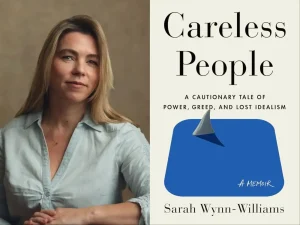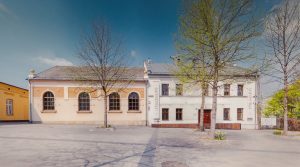“Intelligent” socks electronically wired to smartphones that could save diabetics from potentially fatal foot ulcers have been invented by Hebrew University students.
The students, members of the university’s BioDesign Medical Innovation program, say the pressure-sensing socks linked to a smartphone application warn wearers of wounds developing before they can feel them.
Diabetic neuropathy, a common complication of the disease, damages the nerves causing numbness and reduced blood supply. If not successfully treated, these ulcers often lead to amputation.
The students believe their invention will go a long way to preventing the formation of ulcers in the first place.
SenseGo, whose development was announced in January, are machine-washable socks containing dozens of micro-fabricated pressure sensors.
READ: ISRAEL’S ENERGY INSPIRES YOUNG CANADIAN ENTREPRENEURS
Changes in pressure due to deformities, incorrect posture or ill-fitting shoes are registered as electrical signals that are relayed to a smartphone app, alerting the wearer to the risk.
The intelligent socks are just the latest biomedical innovation to come out of the Hebrew University program and were highlighted by its co-creator, Prof. Yaakov Nahmias, founding director of the university’s Alexander Grass Centre for Bioengineering. He was guest speaker at an Albert Einstein Business Forum Luncheon, sponsored by the Canadian Friends of the Hebrew University and hosted by the law firm Borden Ladner Gervais.
The goal of BioDesign, founded in 2012, is to bring innovations like SenseGo to the marketplace. They are commercialized through Yissum, the technology transfer company of Hebrew University, and Hadasit, its counterpart at the affiliated Hadassah Medical Centre.
Sense-go pressure sensing socksHebrew Universities Bio Design Team has created a washable sock called “Sense-Go”. It is a pressure sensing sock that sends messages to the wearers smart phone giving them and their doctors information about areas of excessive pressure and compromised circulation in the foot. These socks are used to help people with Diabetic Neuropathy in the prevention of foot ulcers.
Posted by Israel is making the world a better place for you and me. on Saturday, January 23, 2016
BioDesign, which works in partnership with Stanford University, has a multi-disciplinary team-based approach, bringing together medical fellows and business and engineering graduate students. Whatever their discipline, all students learn both the science and how to get the fruits of their research to market, he said, working together on a single project.
The one-year course is taught – in English – by, not only university faculty, but also clinical experts, medical device entrepreneurs, corporate executives, intellectual property lawyers and venture capitalists.
In its short history, BioDesign has succeeded in marketing a number of products, and attracted the attention of venture capitalists and investment from corporations, notably Boston Scientific and the Japanese firm Terumo.
SenseGo, officially introduced to the world on Jan. 27, has yet to find an angel.
The pressure-sensing socks are a special source of pride to Nahmias as he won the 2014 Rappaport Prize for the development of nanotechnologies used in the treatment of diabetes, among other work.
Nahmias returned to his native Israel in 2009 after working as an independent investigator at Harvard Medical School, and founded the Centre for Bioengineering.
He and his team succeeded last year in growing lab liver tissue less than a millimeter in diameter that survives for up to two months. These functional cells, which mimic human physiology, are derived from stem cells. They make the observation of, for example, drug toxicity feasible without harm to any living being and results can be monitored instantly, he said.
The Grass Centre brings together scientists to produce tangible applications outside the lab.
READ: REVOLUTIONARY TREATMENT OF TYPE 1 DIABETES IN CLINICAL TRIALS
Despite its success, the centre still is not a physical entity, but rather scattered among a number of “basements” across the campus, he said. Nahmias’ goal is to build a central location, which he believes would cost $50 million (US) – “a quarter of what it would be in the United States.”
Such an investment can only bolster Israel’s booming life sciences industry, he said. The country is already home to 1,100 companies in that field. Almost half of them did not exist five years ago, he noted, fostered by government incentives, such as tax holidays and subsidies.
“Israel is now the no. 1 maker of medical devices in the world.”
Getting brilliant students from such different disciplines to work together is challenging, he admitted, especially given that Israelis tend to have Type A personalities.
But that tension is a creative impetus. “Our strength is that nothing is holy. People shout and fight. But out of it we distil something really good.”






